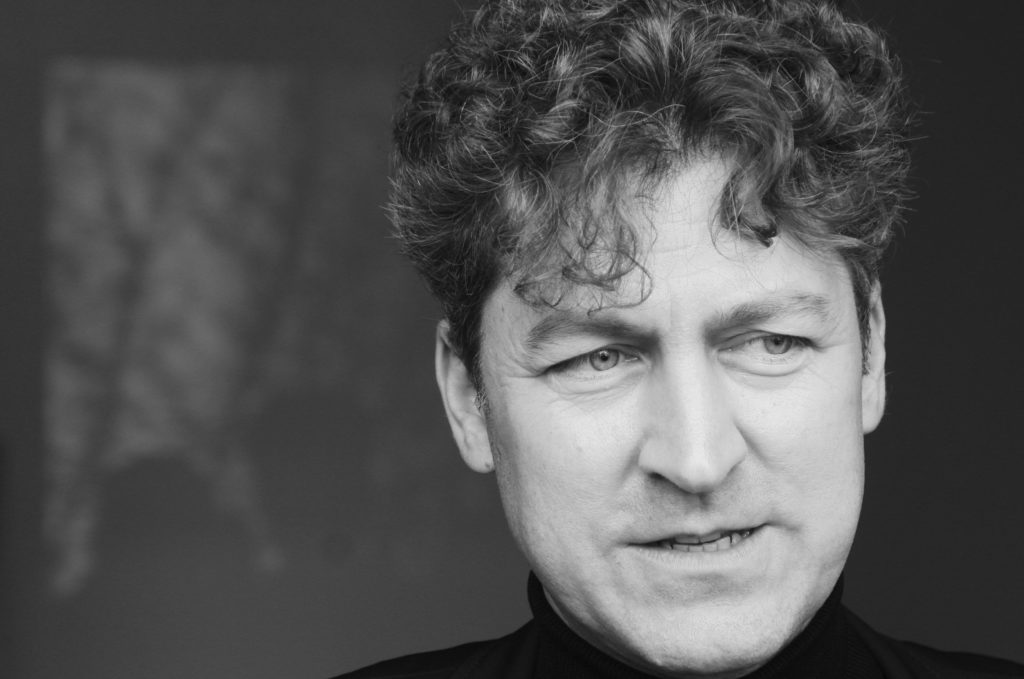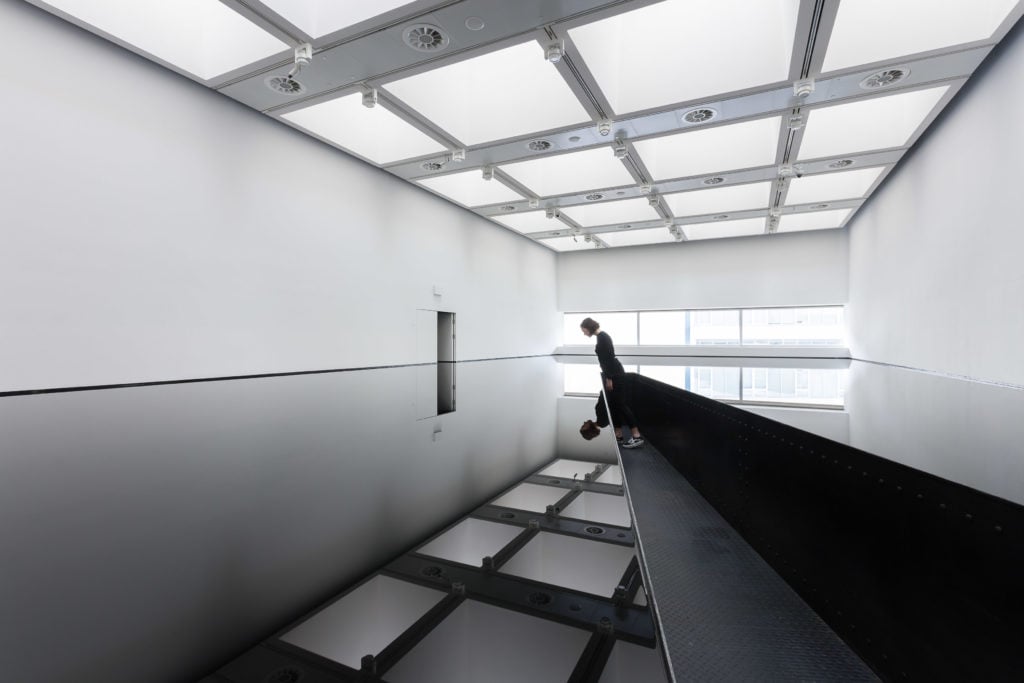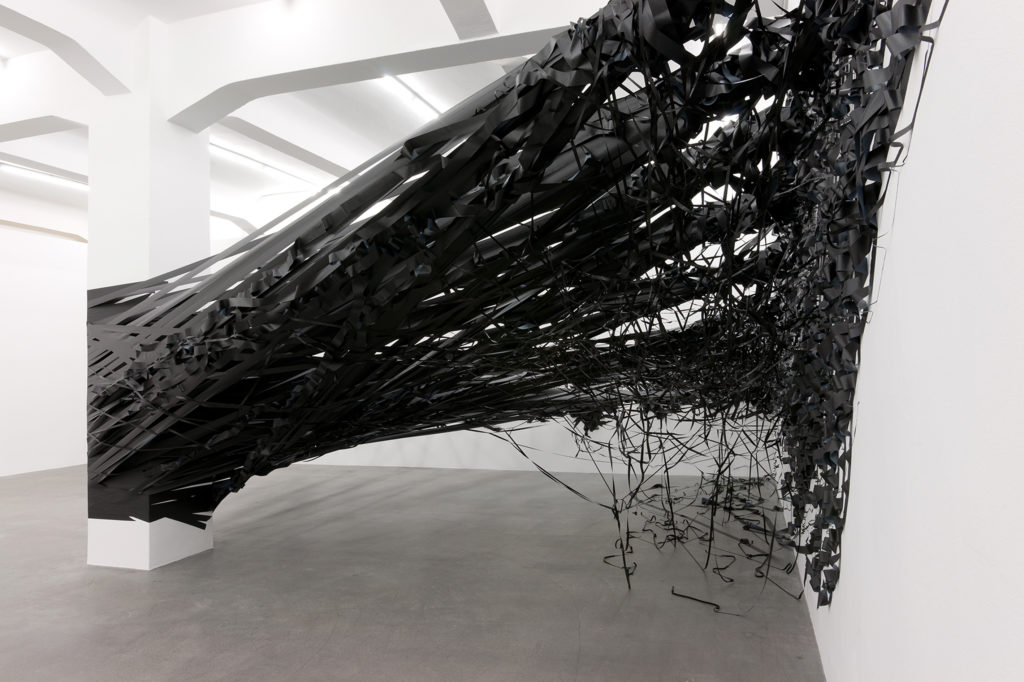People
A Museum Director Planned a Show About Art and Oil. Just One Problem: His Institution Is Funded by Volkswagen
Many wonder if Ralf Beil's fossil fuel-focused exhibition was a problem for the museum's sole sponsor, Volkswagen.

Many wonder if Ralf Beil's fossil fuel-focused exhibition was a problem for the museum's sole sponsor, Volkswagen.

Kate Brown

Last Thursday afternoon, lawyers informed the director of the Kunstmuseum Wolfsburg that he would have to clear out his desk and leave his post the next day by 2 p.m. sharp. News of Ralf Beil’s departure came as an utter surprise to the public. The visitor numbers were healthy. The media was showing up at the openings. The finances were in good shape. Why was he let go?
Speculation abounded in the German media. The discussion quickly zeroed in one show on the calendar for 2019: an ambitious group exhibition centered on fossil fuels called “Oil—Beauty and Horror in the Petrol Age.” The issue? Wolfsburg, where the museum is located, is the global headquarters of carmaker Volkswagen. And the Volkswagen Art Foundation is the sole sponsor of the Kunstmuseum. The head of the museum’s board, Hans Dieter Pötsch, is the head of Volkswagen’s board. “In Wolfsburg, nearly everything is related to Volkswagen,” Beil told artnet News in an email interview.
The director, who joined the museum in 2015 for a five-year term that was set to wrap in January 2020, expressed surprise at his ouster. “I was wiped out of my museum within one day,” he says. In the museum’s public statement, they said Beil was going to be terminated at the end of June 2019. He suspects that the optics of his exhibition program played a role.
The Kunstmuseum maintains that the show was not the reason for Beil’s dismissal, though a spokeswoman declined to provide another explanation. The Volkswagen Art Foundation’s board of trustees declined to comment.

Kunstmuseum am Holler-Platz in Wolfsburg. Photo: Kintaiyo via Wikimedia Commons.
When he started out, Beil said he felt confident he would be able to work freely at the museum, despite its funding structure. (Corporate sponsorship is not unusual for museums, although most institutions are not backed by a single corporate entity.) “My contract stated explicitly that I have ‘the sole artistic responsibility regarding all programs of the museum,'” Beil said.
Some of his choices have been confrontational. In the exhibition “Wolfsburg Unlimited” in 2016, Beil brought attention to the city’s historical connections with the Nazi regime. He also included in the show a video of the press conference in which Martin Winterkorn, the former chairman of the board of management of Volkswagen, admitted his company’s systematic exhaust fraud.
But sometimes, Beil said, he still felt pressure from the board. During the run-up to the 2018 exhibition “Facing India,” for example, he told artnet News that a board member asked him “why we would not do a show on Chinese artists instead, the biggest market of Volkswagen today. I simply answered that Kunstmuseum Wolfsburg would not plan its projects on the base of Volkswagen’s markets, as I believe in the benefit of artistic and curatorial independence.” (The show moved forward; a spokeswoman for the museum said the Volkswagen Art Foundation’s board of trustees never interfered with the museum’s operations.)

Installation view of Richard Wilson’s 20:50, (1987). © copyright the artist, courtesy Hayward Gallery 2018. Photo: Mark Blower
Then, of course, there is the planned exhibition “Oil—Beauty and Horror in the Petrol Age.” Beil maintains the exhibition was not an activist exercise. Instead, he hoped to examine the role of oil during war and in the plastic age and include work by London-based installation artist Gayle Chong Kwan, Polish installation artist Monika Grzymala, and UK artist Richard Wilson, whose acclaimed oil room 20:50, which was on view earlier this year at London’s Hayward Gallery.
Beil did not immediately respond to a follow-up query about exactly when the board first learned about the exhibition. He said he was initially informed this summer that the museum had engaged a headhunter to seek his replacement.
“If this was a problem for some influential people outside the board, they fundamentally misunderstood the aim of the show,” he said. “I always stressed the fact that it was not about activism, but about great art and deep insights of cultural history.”
The museum said its new director and the show’s two other co-curators and initiators, Alexander Klose and Benjamin Steininger, will meet in January to “discuss the chances to execute the exhibition without the curatorial contribution of Dr. Ralf Beil.” Meanwhile, the participating artists remain in the dark. Grzymala, who had planned to present a modified version of her work Raumzeichnung (Bass) (2012) in the museum’s foyer, told artnet News she is “not sure if my work will be ever realized or if I am willing to be part of the exhibition under these political circumstances.”
The Kunstmuseum spokeswoman maintains the show was not the cause for Beil’s ouster and points out that in October, the Kunstmuseum held an international conference called “True Oil. Paradigms and Tenets of Petro-Modernism” ahead of the exhibition.

© Monika Grzymala’s Raumzeichnung (Bass) (2012) at Galerie Crone. Courtesy Galerie Crone, Berlin Wien.
The museum wasted no time naming Beil’s replacement. Andreas Beitin, formerly of the Ludwig Forum in Aachen, will join the museum next spring; his face is already splashed across the museum’s homepage.
Beitin, an established art historian and curator with a good reputation, has recently been criticized for ignoring some city regulations and generating additional costs through his programming, according to Monopol. Beitin confirms in an email to artnet News that he did occasionally violate the city’s “extremely strict regulations,” but that he adhered to all the budgets he was given. “[This] was confirmed by the administration last week,” he says, “so no taxpayers’ money was wasted.”
Until Beitin arrives, Otmar Böhmer, the managing director and board member of the Volkswagen Art Foundation, will serve as interim director.
Beil says he hopes that the new leadership “will not have to use his internal scissors of censorship to survive” in his post. “We are living in a world with ever diminishing ethical values,” he said. “I guess we just have to stay close to ourselves and our convictions—what else would make sense? I still believe that museums are in best case a highly inspiring retreat for non-commercial, basically purposeless reflection on fundamental questions of art and life.”